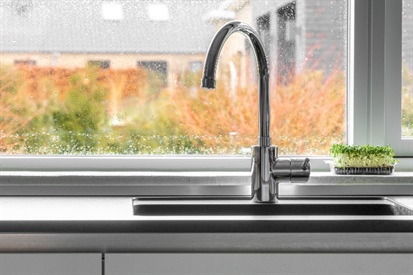Prevent Kitchen Sink Clogs: Expert Tips and Solutions

Keeping your kitchen sink free of clogs can save you time, frustration, and expensive repairs. If you’ve ever dealt with slow drainage, foul odors, or persistent blockages, understanding the causes and prevention methods is key.
Whether it’s food scraps, grease buildup, or improper garbage disposal use, common habits in the kitchen can lead to recurring sink issues. Fortunately, with the right knowledge and a few simple practices, you can avoid these problems entirely.
In this article, we’ll explore common questions about kitchen sink clogs, including the impact of food waste, how grease and oil cause drain blockages, and the role of garbage disposals. You’ll also learn natural ways to clean your drain and when it’s time to call a professional plumber. By understanding these sub-topics, you’ll have the tools to keep your kitchen plumbing running smoothly.
Can Food Waste Cause Recurring Sink Clogs?
Food waste is one of the leading causes of recurring sink clogs. Even small particles like coffee grounds, eggshells, or pasta can accumulate over time, creating a stubborn blockage. Certain foods expand when wet, such as rice or bread, which worsens the problem by trapping other debris and reducing water flow.
Fats and fibrous foods are especially problematic. Starchy foods like potato peels and fibrous items such as celery or onion skins can wrap around components in your drain or garbage disposal, causing serious blockages. To prevent this, scrape plates into the trash before rinsing them and use a sink strainer to catch debris.
Regularly clearing your drain and minimizing food waste disposal can reduce recurring clogs. If issues persist, professional cleaning may be necessary to restore proper flow.
How Do Grease and Oil Contribute to Drain Blockages?
Grease, oil, and fats are notorious for creating drain blockages. When poured down the sink, grease might appear liquid, but as it cools, it solidifies and adheres to the walls of your pipes. Over time, these deposits trap food particles and other debris, forming a stubborn clog.
Common culprits include cooking oils, bacon grease, butter, and shortening. Even washing greasy dishes with hot water doesn’t solve the issue, as the grease can still solidify further down the pipe. To prevent grease-related clogs, always pour oils into a sealed container and dispose of them in the trash.
Routine maintenance and professional drain cleaning can help address the buildup caused by grease and oil before it leads to significant plumbing issues.
What Is the Role of Garbage Disposals in Preventing Clogs?
Garbage disposals are valuable tools for breaking down food waste, but they are not a catch-all solution. Proper use is essential to prevent clogs. Garbage disposals grind food into smaller particles, which makes it easier for waste to flow through the pipes. However, they are not designed to handle large quantities of food or certain materials like bones, coffee grounds, or fibrous vegetables.
To use a garbage disposal effectively, run cold water while operating the unit and avoid overloading it. Cold water helps solidify grease and ensures waste moves smoothly through the pipes. Regular cleaning with a mixture of ice and salt can also help maintain the blades and prevent buildup.
While garbage disposals can reduce clogs, improper use can cause problems. Always follow best practices and promptly address any unusual noises or performance issues.
How Can I Clean My Kitchen Drain Naturally?
Natural methods can be effective for maintaining a clean kitchen drain and preventing clogs. One of the most popular solutions involves baking soda and vinegar. Start by pouring half a cup of baking soda down the drain, followed by one cup of vinegar. Let the mixture sit for 15 minutes, then flush it with boiling water to dissolve buildup and freshen the pipes.
Another method is using salt and hot water. Pour half a cup of coarse salt down the drain, followed by boiling water. The abrasive texture of the salt helps clear minor blockages while disinfecting the drain.
For a more thorough cleaning, you can use a drain snake or plunger to dislodge debris. Regular natural cleaning prevents buildup without the harsh chemicals that can damage pipes over time.
When Should I Call a Plumber for a Persistent Clog?
If home remedies fail to resolve a persistent clog, it may be time to call a professional plumber. Signs that indicate a serious issue include slow drainage, recurring clogs, foul odors, or water backups. These symptoms could point to deep blockages, grease buildup, or even damage within your pipes.
A plumber can use specialized tools like drain augers, hydro-jetting, or video inspections to identify and remove stubborn clogs safely. Attempting to fix severe blockages yourself can sometimes cause further damage, especially if the pipes are old or compromised.
For expert assistance, you can always contact Drain Pro Plumbing for professional intervention to restore your kitchen plumbing and prevent future issues. Whenever you’re experiencing recurring problems or need professional help, trust Drain Pro Plumbing to deliver efficient and reliable kitchen plumbing solutions!